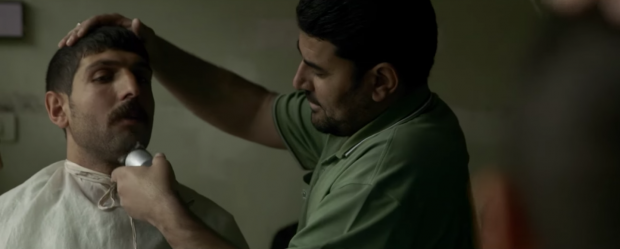A Moving Look At The Lone Kurdish Sniper Fighting ISIS In Kobani

2016-12-26T22:09:00+00:00
A moving film about a sniper fighting the Islamic State in Syria gives an intimate glimpse into his lonely and at times brutal life in the city of Kobani.
“Snipers like to be alone,” he says in the Journeyman Pictures film, which follows him as he gets a haircut, walks through the ruins of the city seeking his next vantage point, bonds with a group of children, and considers haunting memories of the people he has killed. He’s a Kurd who goes by Haron Ayaz.
(YouTube/Screenshot)
“IS attacked our country,” he says. “That’s when I decided to go to Kobani to defend it. They’re attacking civilians. They destroy everything. And they’re beheading people. They kidnap women and sell them as sex slaves. Those inhuman activities had a big impact on me.”
ISIS laid siege to the city along Turkey’s southern border in 2014, and captured hundreds of villages in the surrounding area, displacing hundreds of thousands of Kurds. The People’s Protection Units, a Kurdish militia, fought to retake the city in 2015, and fought back a renewed ISIS offensive in the summer of 2015.
Ayaz walks in the ruins of the city and finds a new perch, where he explains how he finds and kills his targets.“As soon as I’m all set up, I try to guess the distance between myself and my enemy,” he says, noting that he doesn’t have any instruments to help him. He also guesses the speed the enemy is moving and the speed of the wind. “You have to know those things in order to be effective.”Images of some of the people he has killed flash across the screen at one point in the film. “After I’ve shot them I check their bodies,” he says, adding that sometimes they turn out to be children combatants. “Of course that upsets me,” he says. “It makes me sad. Of course they haunt me in my nightmares.”Haron laughs as he hands out presents to a group of children gathered around a fire toward the end of the film. He explains that he fights for their sake, so they can “speak their own language and live in their own culture.”“My dreams are over,” he says. “But I want a better life for generations to come.